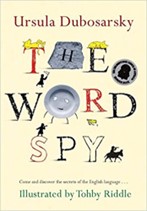

Year 11 English Language Units 1 and 2
Overview
Unit 1: Language Communication
Language is an essential aspect of human behaviour and the means by which individuals relate to the world, to each other and to the communities of which they are members. In this unit, you will consider the ways language is organised so that its users have the means to make sense of their experiences and to interact with others. You will explore the various functions of language and the nature of language as an elaborate system of signs and conventions. The relationship between speech and writing as the dominant language modes and the impact of situational and cultural contexts on language choices are also considered. You will investigate children’s ability to acquire language and the stages of language acquisition.
UNIT 2: Language Change
This unit is all about tracking the amazing journey and transformation of English as a language. Languages are dynamic and language change is an inevitable and continuous process. You will consider factors contributing to change in the English language over time and factors contributing to the spread of English. You will explore texts from the past and from the present and consider how language change affects each area of language. You will see how the global spread of English has led to a diversification of the language but how this spread has many cultural repercussions. You will investigate how contact between English and other languages has led to the development of geographical and ethnic varieties but has also hastened the decline of the languages of indigenous peoples.
Who is it for?
VCE English Language Units 1 and 2 is one of the English subjects you can undertake in order to qualify for a VCE certificate. English Language is considered a more difficult English subject than standard English, however it is an incredibly rewarding subject. It is recommended that you complete English Language Units 1 and 2 prior to enrolling in the Unit 3 and 4 subject at Year 12. Students particularly adept in English may choose English Language alongside other VCE English subjects. Check the VCE requirements around English subjects prior to choosing your program.
This subject is for students who want to understand the ‘science’ of language. This subject will equip students with tools to dissect language and so many different aspects of language that most find utterly fascinating. What are the linguistic cues that hide behind a casual conversation? Learning English Language, or linguistics, really does open up the world in very new and exciting ways.
Knowledge of how language functions provides a useful basis for further study or employment in numerous fields such as arts, sciences, law, politics, trades and education. The study supports language-related fields such as psychology, the study of other languages, speech and reading therapy, journalism and philosophy. It also supports study and employment in other communication-related fields, including designing information and communications technology solutions or programs.
What do you do?
- Analytical Commentaries; where you subject a piece of text to analysis using the metalanguage of the subsystems
- Investigative Reports
- English Language Essays
- Creating transcripts of written and spoken texts
- Language Journal exercises
- Grammatical exercises and application of grammatical knowledge
What skills do you need?
- A curiosity about language and the way it works
- The ability and patience to memorise a lot of linguistic terms
- The ability and patience to complete quite a bit of background in grammar to equip you to dissect text like a linguist
- You will need to be able to read a range of media texts independently to search for sources for your language journal
- If you are returning to education or have had an interrupted study experience, you will be supported to acquire the study habits needed to be successful in this subject
What skills do you develop?
Students will learn to read and evaluate written and spoken texts using their knowledge of the requirements of an Analytical Commentary.
Students will develop a deep knowledge of the five subsystems of linguistics and be able to apply this knowledge to an analysis of written and spoken texts.
Students will acquire the ability to understand words in terms of their sound, shape, history and cultural significance.
Students will learn how to write an Investigative Report and an English Language essay.
Students will learn the process of reading widely and keep up and English Language Journal.
Requirements
Recommended text:
Kate Burridge & Debbie de Laps, Love the Lingo: English Language 1 & 2 (4th edition) Lingo Books, 2023
Things to think about
This will help you to strengthen all aspects of your language skills and let you understand how to analyse written and spoken texts like a linguist.
You will be required to keep a language journal. This means you should take notice and record, in your language journal, items from social media, the news, and other sources that relate to language and society.
Look at the other English courses available at VSV and consider whether you are best suited to the rigours of English Language, which is known to be more challenging than standard English. If you are not sure, speak to a year level coordinator at VSV.
English Language Units 1 to 4 is one of the English you can select in order be eligible for a VCE certificate.
Things you can do now
You could start a language journal. Look at trends in new words, look at ways in which the media and social media use language. Save the articles and make notes on them.
You could purchase and read ‘Word Spy’ a fun little linguistic book by Ursula Dubosarsky, published by Puffin, 2011. This is not required, but it is very fun introduction into aspects of linguistics.

Things to have a look at
Start a language journal

